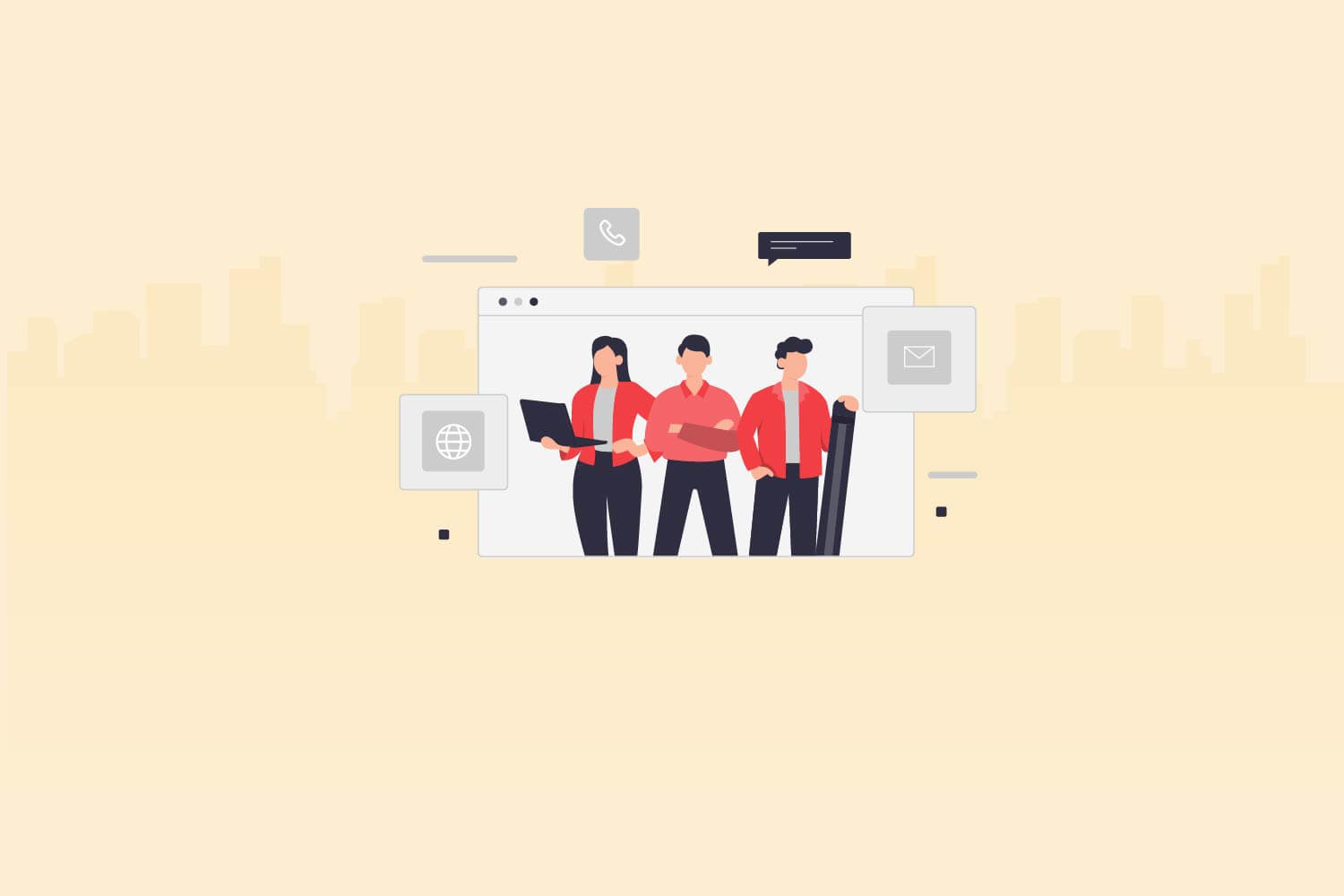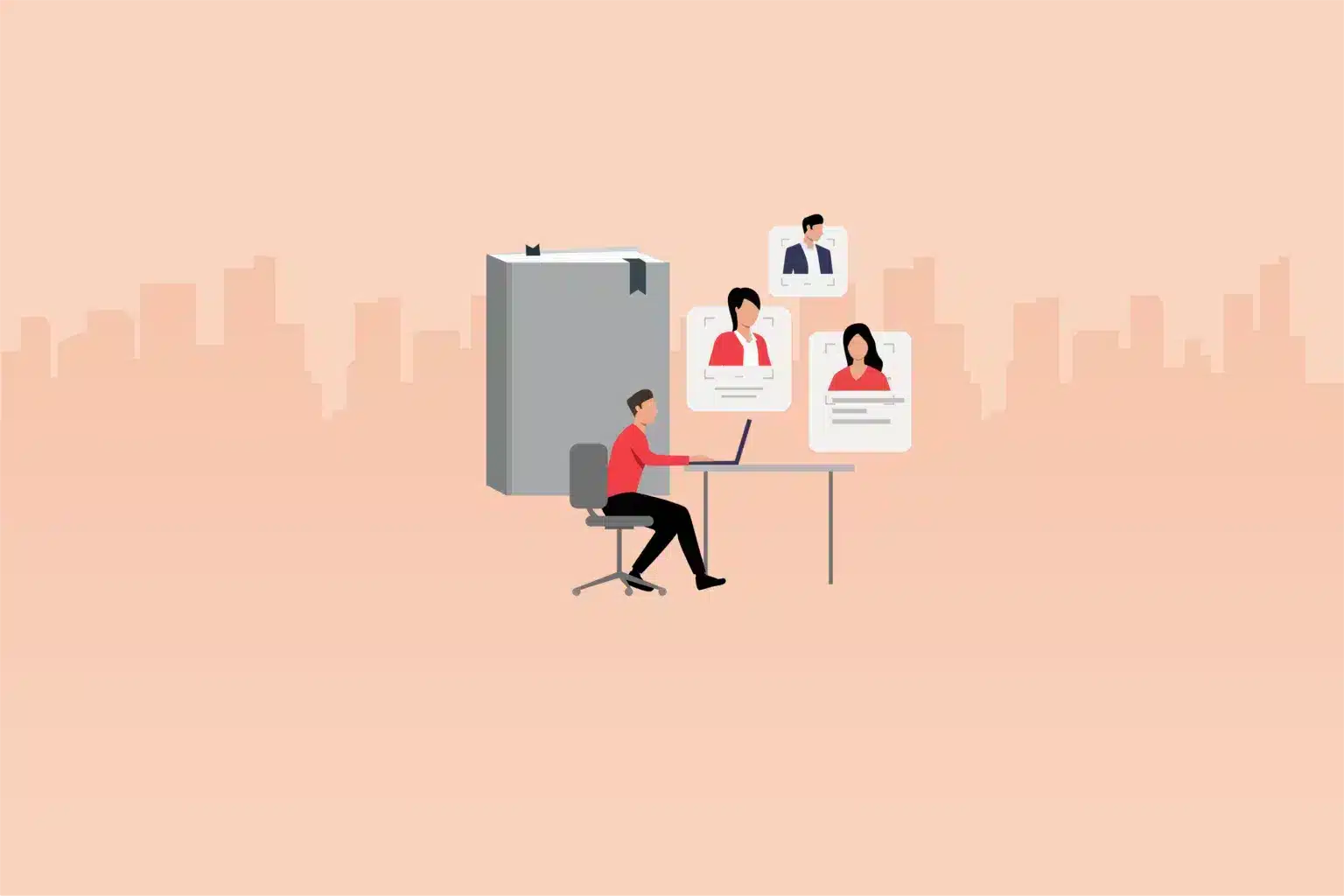In today’s dynamic business environment, the role of a Procurement Assistant is increasingly crucial in supporting organizations’ procurement strategies and optimizing supply chain operations. The recruiting trend for Procurement Assistants has seen a notable rise, driven by the growing recognition of procurement’s strategic impact on business outcomes. According to recent analytics, the demand for Procurement Assistants has steadily increased over the past few years, with a particular focus on candidates who possess a strong combination of technical expertise, analytical skills, and the ability to collaborate effectively with stakeholders.
As organizations seek to streamline their procurement processes, reduce costs, and enhance supplier relationships, the role of a Procurement Assistant has evolved to become an integral part of the procurement function. HR professionals and CXOs understand the importance of identifying candidates with a solid understanding of procurement principles, negotiation skills, and the ability to leverage technology for data-driven decision-making. In this landscape, it is essential to crafting interview questions that delve into candidates’ expertise, problem-solving abilities, and approach to collaboration, ensuring that the right talent is selected to drive strategic procurement initiatives.
Here are the top 60 Procurement Assistant interview questions to ask job applicants:
15 general interview questions for the Procurement Assistant
- Can you explain your understanding of the procurement process from start to finish?
- How do you prioritize your procurement tasks when you have multiple competing deadlines?
- Can you describe a time when you had to negotiate with a supplier to achieve cost savings or favorable terms? How did you approach the negotiation process?
- How do you ensure compliance with procurement policies, procedures, and regulations?
- Can you provide an example of a time when you identified a more cost-effective supplier or alternative product that resulted in cost savings for the organization?
- How do you evaluate supplier performance and maintain strong relationships with suppliers?
- Can you describe a time when you had to resolve a conflict or disagreement with a stakeholder or supplier during the procurement process? How did you handle the situation?
- How do you stay updated with market trends and changes in supplier landscapes?
- Can you explain your experience with using procurement software or systems to streamline processes and manage data?
- How do you ensure accuracy and attention to detail when handling procurement documentation and records?
- Can you provide an example of a time when you had to manage an urgent or high-priority procurement request? How did you handle the situation?
- How do you assess supplier risks and ensure continuity of supply?
- Can you describe a time when you had to collaborate with cross-functional teams, such as finance or operations, to align procurement activities with organizational goals?
- How do you handle situations where there are conflicting demands from internal stakeholders or departments?
- Can you explain your approach to contract management and the key elements you consider when reviewing and negotiating contracts?
5 sample answers to general interview questions for the Procurement Assistant
- Can you explain your understanding of the procurement process from start to finish?
Look for: The candidate’s comprehensive knowledge of the procurement process, including planning, sourcing, negotiation, contracting, and supplier management.
Example answer: “The procurement process begins with identifying the organization’s procurement needs and creating a strategic plan. This involves conducting market research, assessing supplier capabilities, and developing sourcing strategies. The next step is sourcing, where I identify potential suppliers, evaluate their qualifications, and request and review proposals. Once suitable suppliers are selected, I negotiate contracts and terms to achieve the best value for the organization. After that, I manage supplier relationships, monitor performance, and handle any issues that arise. Finally, I ensure compliance with procurement policies and procedures, maintain accurate records, and continuously evaluate and improve the procurement process.”
- How do you prioritize your procurement tasks when you have multiple competing deadlines?
Look for: The candidate’s ability to effectively prioritize tasks, manage time, and meet deadlines in a fast-paced procurement environment.
Example answer: “When faced with multiple competing deadlines, I prioritize tasks by assessing their urgency, importance, and impact on the organization. I create a prioritized to-do list and utilize project management tools to track deadlines and progress. I break down complex projects into smaller, manageable tasks and allocate specific time blocks for each task. Additionally, I maintain open communication with stakeholders, keeping them informed about timelines and managing expectations. By employing effective time management strategies, setting realistic deadlines, and maintaining clear communication, I ensure that I meet deadlines and deliver high-quality results.”
- Can you describe a time when you had to negotiate with a supplier to achieve cost savings or favorable terms? How did you approach the negotiation process?
Look for: The candidate’s negotiation skills, ability to achieve cost savings, and approach to building positive supplier relationships.
Example answer: “In my previous role, I had to negotiate with a supplier to achieve cost savings on a major procurement project. To prepare for the negotiation, I conducted thorough research on market prices and alternative suppliers to understand the pricing landscape. I identified areas for potential cost reductions and gathered supporting data to strengthen my bargaining position. During the negotiation, I adopted a collaborative approach, emphasizing mutual benefits and long-term partnerships. I engaged in active listening, understood the supplier’s concerns, and looked for creative solutions that addressed both parties’ needs. By building rapport, presenting data-backed arguments, and exploring win-win scenarios, I successfully negotiated a favorable agreement that resulted in significant cost savings for the organization.”
- How do you ensure compliance with procurement policies, procedures, and regulations?
Look for: The candidate’s understanding of procurement compliance, their attention to detail, and their approach to following policies and regulations.
Example answer: “Ensuring compliance with procurement policies, procedures, and regulations is a top priority for me. I pay meticulous attention to detail and follow established guidelines throughout the procurement process. I thoroughly review procurement policies and procedures, keeping myself updated with any changes. I maintain accurate records of all procurement activities, including documentation, approvals, and contracts. Additionally, I actively seek clarification from the procurement team or legal department if I encounter any uncertainties regarding compliance. By being diligent in my adherence to policies, maintaining accurate records, and seeking guidance when needed, I ensure that all procurement activities are compliant with regulations.”
- Can you provide an example of a time when you identified a more cost-effective supplier or alternative product that resulted in cost savings for the organization?
Look for: The candidate’s analytical skills, ability to identify cost-saving opportunities, and proactive approach to supplier research.
Example answer: “In a recent procurement project, I identified a more cost-effective supplier that resulted in significant cost savings for the organization. I conducted a comprehensive supplier evaluation, comparing prices, quality, and delivery timelines. Through thorough research and supplier interviews, I discovered a potential alternative supplier that offered similar quality products at a lower cost. I analyzed the total cost of ownership, factoring in factors such as shipping, maintenance, and warranty terms. I presented the findings to the procurement team, highlighting the cost savings and the supplier’s positive track record. After careful evaluation and due diligence, we decided to switch to the more cost-effective supplier, resulting in a 20% reduction in procurement costs without compromising quality or delivery timelines.”
15 behavioral interview questions for a Procurement Assistant
- Tell me about a time when you had to handle a procurement request with a tight deadline. How did you prioritize tasks and ensure timely delivery?
- Can you describe a situation where you had to resolve a conflict or disagreement with a supplier or stakeholder during a procurement process? How did you approach the situation and what was the outcome?
- Give an example of a time when you identified a potential risk in a supplier’s proposal or contract. How did you address the risk and ensure the organization’s interests were protected?
- Describe a time when you successfully negotiated with a supplier to achieve a better deal or improved terms. How did you approach the negotiation, and what were the results?
- Tell me about a challenging procurement project you worked on. How did you overcome obstacles or setbacks to achieve successful outcomes?
- Can you share an experience where you had to handle a high-volume procurement workload? How did you manage your time and maintain accuracy and attention to detail?
- Give an example of a time when you had to analyze complex procurement data or financial information to make informed decisions. How did you approach the analysis, and what were the outcomes?
- Describe a situation where you had to collaborate with cross-functional teams, such as finance or operations, to align procurement activities with organizational goals. How did you ensure effective communication and cooperation?
- Tell me about a time when you had to handle a sensitive or confidential procurement project. How did you maintain confidentiality and ensure data security?
- Give an example of a time when you identified an opportunity to streamline procurement processes or improve efficiency. How did you implement changes, and what were the outcomes?
- Describe a situation where you had to handle unexpected changes or disruptions in the supply chain. How did you adapt your procurement strategies and ensure continuity of supply?
- Can you share an experience where you had to assess the quality or performance of a supplier’s products or services? How did you evaluate their performance and address any issues that arose?
- Tell me about a time when you had to manage multiple stakeholders with conflicting priorities or demands. How did you handle the situation and ensure all parties were satisfied?
- Give an example of a time when you successfully implemented cost-saving measures in a procurement process. How did you identify the cost-saving opportunities, and what were the outcomes?
- Describe a situation where you had to evaluate and select a supplier based on their ethical and sustainability practices. How did you assess their practices, and what factors did you consider in your decision-making?
5 sample answers to behavioral interview questions for the Procurement Assistant
- Tell me about a time when you had to handle a procurement request with a tight deadline. How did you prioritize tasks and ensure timely delivery?
Look for: The candidate’s ability to handle time-sensitive situations, prioritize tasks effectively, and deliver results within deadlines.
Example answer: “In my previous role, we had a procurement request with a tight deadline due to an unexpected increase in demand. To prioritize tasks and ensure timely delivery, I immediately assessed the critical path and identified the key activities required for successful procurement. I communicated with the requesting department to understand their urgency and collaborated with relevant stakeholders to streamline the process. By delegating responsibilities and leveraging our procurement software, we effectively managed the workload and met the deadline. I constantly monitored the progress, provided regular updates to the requesting department, and made adjustments when necessary. Our ability to prioritize tasks and work efficiently as a team enabled us to successfully deliver the procurement request within the required timeframe.”
- Can you describe a situation where you had to resolve a conflict or disagreement with a supplier or stakeholder during a procurement process? How did you approach the situation and what was the outcome?
Look for: The candidate’s conflict resolution skills, ability to manage relationships, and focus on achieving positive outcomes.
Example answer: “During a procurement process for a critical project, a conflict arose between the supplier and our organization regarding the delivery timeline. The supplier claimed they needed additional time, which could have potentially delayed the project. To address the conflict, I first listened carefully to the supplier’s concerns to gain a better understanding of their perspective. I then analyzed the impact of the delay on our project timeline and communicated this to the supplier. Through open and honest discussions, I proposed a mutually beneficial solution that involved revising the delivery schedule while ensuring project milestones were not compromised. By maintaining a collaborative approach and focusing on finding common ground, we were able to resolve the conflict to the satisfaction of both parties, ensuring the project progressed smoothly.”
- Give an example of a time when you identified a potential risk in a supplier’s proposal or contract. How did you address the risk and ensure the organization’s interests were protected?
Look for: The candidate’s risk assessment abilities, attention to detail, and their proactive approach to mitigating potential risks.
Example answer: “During the evaluation of a supplier’s proposal, I noticed a potential risk in their contract terms related to liability and warranty. To address the risk and protect the organization’s interests, I initiated discussions with the supplier to seek clarification and propose necessary amendments. I collaborated with the legal department to review the contract, highlighting the specific areas of concern. By engaging in proactive communication with the supplier and legal team, we were able to negotiate revised terms that provided more favorable liability and warranty provisions. This ensured that the organization was adequately protected from potential risks associated with the supplier’s proposal, giving us peace of mind in our procurement decision-making process.”
- Describe a time when you successfully negotiated with a supplier to achieve a better deal or improved terms. How did you approach the negotiation, and what were the results?
Look for: The candidate’s negotiation skills, ability to achieve cost savings or improved terms, and preparation and strategy in negotiations.
Example answer: “In a recent negotiation with a supplier, our goal was to secureimproved pricing and contract terms. Prior to the negotiation, I conducted thorough market research and analyzed the supplier’s pricing structure, industry benchmarks, and our historical spending. Armed with this data, I approached the negotiation with a clear understanding of our objectives and a well-defined strategy. During the negotiation, I emphasized the long-term partnership and highlighted our volume of business and potential for future growth. By showcasing our commitment and leveraging market insights, we successfully negotiated a 10% reduction in pricing and improved contract terms, which resulted in significant cost savings for the organization without compromising on quality or service levels.”
- Tell me about a challenging procurement project you worked on. How did you overcome obstacles or setbacks to achieve successful outcomes?
Look for: The candidate’s ability to handle challenges, adaptability, problem-solving skills, and resilience in the face of obstacles.
Example answer: “I encountered a challenging procurement project when the original supplier for a critical component faced production delays, jeopardizing our production schedule. To overcome this setback and ensure successful outcomes, I quickly engaged in supplier scouting to identify alternative options. I evaluated potential suppliers based on their capabilities, quality, and ability to meet our production timelines. Through diligent research and supplier evaluations, I found a reliable supplier who could fulfill our requirements. I promptly negotiated new contracts and coordinated with the operations team to adjust production plans. By proactively addressing the setback and taking swift action, we successfully mitigated the risk, ensured continuity of supply, and met our production deadlines.”
15 personality interview questions for the Procurement Assistant
- How do you prioritize your workload when faced with multiple competing tasks or deadlines?
- Describe a situation where you had to demonstrate attention to detail in your work. How did you ensure accuracy and minimize errors?
- How do you approach building and maintaining relationships with suppliers or vendors?
- Can you describe a time when you had to work collaboratively with cross-functional teams to achieve a common goal? How did you contribute to the team’s success?
- How do you handle stressful situations or tight deadlines in a fast-paced procurement environment?
- Give an example of a time when you had to think critically and make a data-driven decision in a procurement context.
- How do you stay updated with market trends and changes in the procurement industry?
- Describe a situation where you had to negotiate with a difficult supplier or stakeholder. How did you handle the negotiation and what strategies did you use?
- How do you ensure ethical practices are maintained throughout the procurement process?
- Describe a time when you had to adapt to changes or unexpected circumstances during a procurement project. How did you handle the situation and what was the outcome?
- How do you stay organized and manage your time effectively in a procurement role?
- Can you provide an example of when you demonstrated effective communication skills while working with internal stakeholders, such as finance or operations teams?
- How do you handle situations where you need to balance cost savings with maintaining quality standards in procurement decisions?
- Describe a time when you had to resolve a conflict or disagreement with a team member or colleague. How did you approach the situation and what was the outcome?
- How do you demonstrate a commitment to continuous improvement and learning in your procurement practices?
5 sample answers to personality interview questions for Procurement Assistant
- How do you prioritize your workload when faced with multiple competing tasks or deadlines?
Look for: The candidate’s ability to manage priorities, organize their workload, and meet deadlines effectively.
Example answer: “When faced with multiple competing tasks or deadlines, I prioritize my workload by assessing the urgency and importance of each task. I create a to-do list and determine the critical tasks that require immediate attention. I consider factors such as project deadlines, dependencies, and the impact on overall procurement objectives. By breaking down larger tasks into smaller, manageable steps and allocating time accordingly, I ensure that I meet deadlines while maintaining a high level of accuracy. Regularly reviewing and adjusting priorities allows me to adapt to changing circumstances and handle multiple tasks efficiently.”
- How do you approach building and maintaining relationships with suppliers or vendors?
Look for: The candidate’s interpersonal skills, ability to foster strong supplier relationships, and their focus on collaboration and mutual benefits.
Example answer: “I believe in building strong and long-lasting relationships with suppliers or vendors. I approach this by establishing open lines of communication from the beginning and being responsive to their needs. I strive to understand their business goals, challenges, and requirements, which helps me tailor our interactions and find common ground. Regularly engaging with suppliers through meetings, site visits, and networking events allows me to build rapport and trust. I also ensure that the relationship is not solely transactional but focused on collaboration and mutual benefits. By maintaining clear and transparent communication, promptly addressing concerns or issues, and recognizing suppliers’ contributions, I cultivate strong relationships that often lead to favorable terms, improved service levels, and strategic partnerships.”
- How do you handle stressful situations or tight deadlines in a fast-paced procurement environment?
Look for: The candidate’s ability to stay composed under pressure, manage stress effectively, and maintain productivity in a fast-paced environment.
Example answer: “In a fast-paced procurement environment, I understand that stress and tight deadlines are part of the job. To handle such situations, I focus on staying organized and maintaining a calm demeanor. I break down complex tasks into smaller, manageable steps and create a timeline to ensure I meet deadlines. I prioritize tasks based on their urgency and importance, delegating responsibilities when necessary. Taking short breaks and practicing stress-management techniques, such as deep breathing or brief physical activity, help me recharge and regain focus. I also proactively communicate with stakeholders to manage expectations and provide regular progress updates. By embracing the challenges and maintaining a positive mindset, I thrive in fast-paced environments and deliver results even under pressure.”
- Can you provide an example of when you demonstrated effective communication skills while working with internal stakeholders, such as finance or operations teams?
Look for: The candidate’s communication skills, ability to collaborate with different teams, and clarity and effectiveness in conveying information.
Example answer: “In a previous role, I was assigned a procurement project that required close collaboration with the finance and operations teams. Throughout the project, I ensured effective communication by organizing regular meetings to discuss project updates, requirements, and any potential issues. I listened attentively to the concerns and insights shared by the finance and operations teams, ensuring their perspectives were taken into account during the procurement process. I communicated complex procurement terms and information in a clear and concise manner, avoiding jargon and providing relevant context. By fostering an open and transparent line of communication, we were able to align our objectives, make informed decisions, and successfully execute the procurement project, meeting the needs of all stakeholders involved.”
- How do you demonstrate a commitment to continuous improvement and learning in your procurement practices?
Look for: The candidate’s attitude towards learning, ability to identify areas for improvement, and proactive approach to staying updated with industry trends and best practices.
Example answer: “I am committed to continuous improvement in my procurement practices. To stay updated with industry trends and best practices, I regularly participate in professional development activities, such as attending procurement conferences, webinars, and workshops. I also subscribe to industry publications and follow relevant thought leaders to stay informed about emerging trends and advancements in procurement. Additionally, I actively seek feedback from colleagues, managers, and stakeholders to identify areas for improvement. By embracing a growth mindset, I continually seek opportunities to enhance my skills and knowledge. I apply what I learn to my work, leveraging new tools, techniques, and strategies to optimize procurement processes, drive cost savings, and enhance overall efficiency.”
When should you use skill assessments in your hiring process for Procurement Assistant?
Skill assessments should be used in the hiring process for Procurement Assistant positions to evaluate candidates’ proficiency and competence in key skills relevant to the role. Assessments are important as they provide objective and standardized measures of a candidate’s abilities, allowing hiring managers to make more informed decisions.
One common assessment used for Procurement Assistants is a numerical reasoning test. This assesses candidates’ ability to analyze numerical data, perform calculations, and interpret financial information—skills vital for budgeting, cost analysis, and supplier negotiation. Additionally, a critical thinking or problem-solving assessment can evaluate a candidate’s ability to analyze complex procurement scenarios, make sound decisions, and propose effective solutions.
Another assessment option is a situational judgment test, which presents candidates with realistic procurement-related scenarios and assesses their judgment and decision-making skills. This provides insight into how candidates handle challenging situations and whether they can apply procurement principles and ethical considerations to make appropriate choices.
Overall, skill assessments help identify candidates with the necessary skills and competencies required for success in a Procurement Assistant role. They offer a standardized and objective evaluation of candidates’ abilities, allowing employers to make more informed hiring decisions and ensure a good match between the candidate’s skill set and the job requirements.
Use our interview questions and skill tests to hire talented Procurement Assistant
Unlock the potential of your hiring process with Testlify’s comprehensive skill assessments and interview questions specifically designed for Procurement Assistant.
Our extensive test library offers a wide range of assessments, including cognitive function, personality, situational judgment, programming, and more. By leveraging these assessments, you can objectively evaluate candidates’ abilities, ensuring you shortlist the most talented individuals efficiently.
To further enhance your hiring process, we invite you to book a free 30-minute live demo. Our expert team will guide you through the platform, showcasing relevant skill tests tailored to your hiring needs. With our support, you can streamline candidate selection, saving valuable time and resources.
Ready to find the perfect fit for your Procurement Assistant role? Testlify provides the tools you need to make informed hiring decisions. Explore our skill assessments and interview questions today to uncover exceptional talent for your team.








